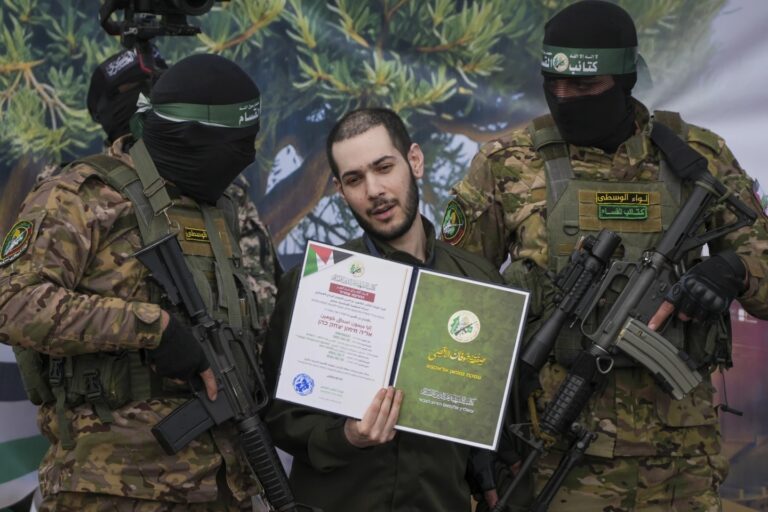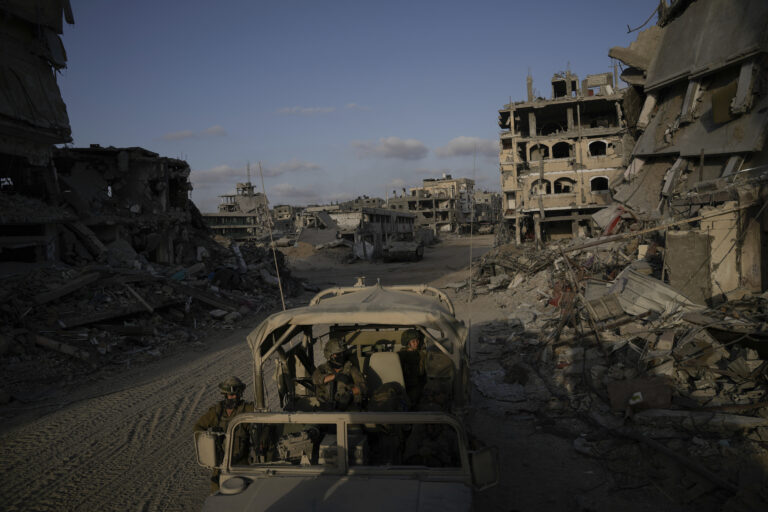 U.S. national security officials said Thursday they’re concerned about the potential for violence at the Republican National Convention in Cleveland as tensions run high around the country after the recent police shootings of unarmed black men and the deadly ambush of police officers in Dallas.
U.S. national security officials said Thursday they’re concerned about the potential for violence at the Republican National Convention in Cleveland as tensions run high around the country after the recent police shootings of unarmed black men and the deadly ambush of police officers in Dallas.
During congressional testimony, Homeland Security Secretary Jeh Johnson said he’s worried demonstrations outside the convention hall next week may get out of hand. He told lawmakers that roughly 4,000 U.S. government personnel will be based in Cleveland to ensure the safety of people there.
“I am concerned about the possibility of violence,” Johnson told the House Homeland Security Committee.
He added that in Ohio it is legal to openly carry firearms. “So that obviously is something that someone under state law, and I suspect the Second Amendment, has a right to do, but it does present a challenging situation very plainly,” Johnson said.
Johnson said he will be inspecting security in Cleveland during a visit Friday. He also said he has similar concerns about the possibility for violence at the upcoming Democratic convention in Philadelphia. He said he plans to visit that site next week for review security preparations.
FBI Director James Comey said there will be “hundreds of people” from the bureau focused on assessing intelligence related to groups that aspire to commit acts of domestic terrorism.
“Anytime there’s a national spotlight on a political event in the United States there’s a risk that groups that aspire to do just that, to engage in acts of domestic terrorism, will be attracted,” Comey said. “It’s a threat we’re watching very, very carefully.”
Among the government personnel in Cleveland will be Secret Service agents, Homeland Security investigators, Customs and Border Protection personnel, and Coast Guard members, according to Johnson. They will be augmented by the Ohio National Guard and state and local law enforcement.
“We have been planning and preparing for both conventions for over than a year,” he said.
During a wide-ranging hearing, Republican members of the committee pressed Comey on the Justice Department’s decision last week not to criminally charge Hillary Clinton over her emails and use of a private server during her tenure as secretary of state.
Comey largely stuck to answers he gave during testimony on Capitol Hill last week and avoided being drawn into debates over what he described as hypotheticals.
Rep. John Ratcliffe, R-Texas, asked Comey to describe a meeting he, other FBI officials and federal prosecutors had with Attorney General Loretta Lynch on July 6, one day after Comey recommended against prosecution for Clinton and her aides.
Ratcliffe asked whether Lynch, during the meeting, read the 110 emails the FBI found that were sent or received on Clinton’s server and contained classified information.
“I don’t think it’s appropriate for me to talk about the specifics of that meeting,” Comey said.
Rep. William Keating, D-Mass., used his time for questions to ask “how important is it that we come together as a country” when divisions run so deep in the wake of the police shootings and the ambush in Dallas.
Johnson said there are “some awful loud voices on both ends of this debate” but he believes the great majority of Americans respect the role of law enforcement. “I also believe that most people recognize that the shooter in Dallas is not representative of the broader movement to see change in certain law enforcement practices,” he said.
Comey said people need to become more connected.
“I’ve long believed it’s hard to hate up close,” Comey said. “We’ve got to let people see the true heart of law enforcement, what we’re really like.”
(AP)










